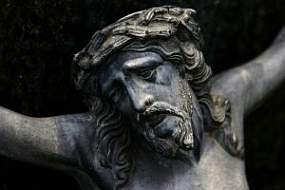My son suffered the ultimate indignity last week—at least from the perspective of a six-year-old boy.
Because our Wednesdays are crazy, we take that day to eat out. I usually bring it home rather than pay for expensive containers of artificially colored and flavored, H2O-diluted high fructose corn syrup. We’ll drink water from our tap, thank you. (I’ve got a bottle of Karo handy if I need a late-night fix.)
The choices in my tiny ‘burg of 2,000 are actually pretty extensive since the Chinese place came to town, but I let my son choose this time. And we parents all know what that means: We’re goin’ to McDonalds.
My son has a McToy fetish bar none. He might play with said Happy Meal treasure for what amounts to nanoseconds, but he’s perpetually itching to see what the Golden Arches is dishing. Surprisingly, he still plays with a little Spyro the Dragon LCD-game he got at McDonalds two years ago, so sometimes Ronald gets it right.
But this time…nope, not this time.
I prolong the agony because I don’t want him rifling through dinner. So we took the plethora of hot bags home, and he pounced on the Happy Meal the second we walked through the door to see what bonanza lay inside.
Wait two seconds…
“Dad, we gotta go back!” he yelled, eyes rimmed with tears.
I fed him my practiced nonplussed expression.
He moaned louder. “But they gave me the girl toy!”
The girl toy. The dread fear of all sub-tween males. The %^$#* GIRL toy.
A man meets the woman of his dreams, marries her, and settles down to bliss. Soon, she’s pregnant. But an unusual illness turns out to be pancreatic cancer. She dies within two months, taking the baby with her.
A couple who’s struggled with infertility adopts an infant boy. Their delight turns to endless days of agony as the boy later manifests an incurable genetic disease so rare that no one tests for it. He’ll progressively become an invalid and die in his teen years. Meanwhile, their health insurance won’t cover the costly therapy needed to prolong his life by five or more years.
A young man starts a company with his best friend. They prosper. But the friend develops a gambling problem that knows no bottom. The man soon learns his friend has embezzled millions to cover his debts. Bankrupt, the company goes under and takes the young man and his family down with it.
Almost two decades ago, I sat on the front porch of a cabin at a Christian camp listening to a boy cry. I didn’t know him. He wasn’t one of the kids that called me “counselor.” But he was hurting, so I hunkered down next to him and listened.
I’d heard anecdotes of warring parents who dropped their kid at camp so they could spend that week shredding their marriage license, but this was the first one I’d encountered in the flesh. He’d received the “Mommy doesn’t love Daddy anymore” phone call just minutes before.
My parents stayed together, so I didn’t possess any firsthand broken home experience. I prayed silently (on the outside, while inside I cried out for wisdom) and listened as this poor kid bawled.
In the end, I told him that I couldn’t identify with what he was going through. I could tell him all sorts of things that might make him feel better for a minute, but I didn’t know what it was like to have parents split up. That was a horrible hurt no one should have to endure.
I charged him with this: One day, he’d be a camp counselor and he’d come across a boy whose parents said to hell with family, and he’d know exactly what to say because he’d experienced that torture, too.
A few weeks ago, I wrote that we need a Gospel that speaks to failure. Everywhere we turn today, we’re treated to a message that screams about seizing our best life now. But no one envisions a best life that includes suffering—now.
Among all the questions why, few of us take the time to ask if our pain is someone else’s gain. Even some stranger’s gain.  We consider the horror dumped on our laps and automatically assume that God’s forsaken us, or we’ve somehow forsaken Him. Yet we rarely wonder if the torment we’re enduring is meant to bless someone else.
We consider the horror dumped on our laps and automatically assume that God’s forsaken us, or we’ve somehow forsaken Him. Yet we rarely wonder if the torment we’re enduring is meant to bless someone else.
Hudson Taylor, the great missionary to Asia, buried a wife and several children in Chinese soil, then went back to England a different man. Joel Osteen was recently voted the most important Evangelical in America. If Taylor were still alive today, and you had your choice between receiving counseling from either Osteen or him after a drunk driver plowed into your family’s car and killed your wife and kids, whom would you choose?
The Bible says this of Jesus:
He was despised and rejected by men; a man of sorrows, and acquainted with grief; and as one from whom men hide their faces he was despised, and we esteemed him not.
—Isaiah 53:3 ESV
Jesus’ contemporaries didn’t think He had anything to give them, did they? We know better. We go to Him with our hurt precisely because He was a man of sorrows, acquainted with grief. And His people, who likewise know sorrow and grief, can be the flesh-and-blood shoulder we need to cry on as we cry out to the heavenly Man of Sorrows.
Your tragedy carries meaning for someone else. God never intends for us to squander pain. Be wise in knowing how to use yours to the benefit of another grieving soul.
My son? On his own he decided the best way to deal with the wrong toy in his Happy Meal was to give it to a girl who might appreciate it. He told me that this would ease the disappointment.
Out of the mouths of babes.


 It's the very backbone of the concept of "The Ugly American." And we show few signs of abandoning this delusion.
It's the very backbone of the concept of "The Ugly American." And we show few signs of abandoning this delusion.